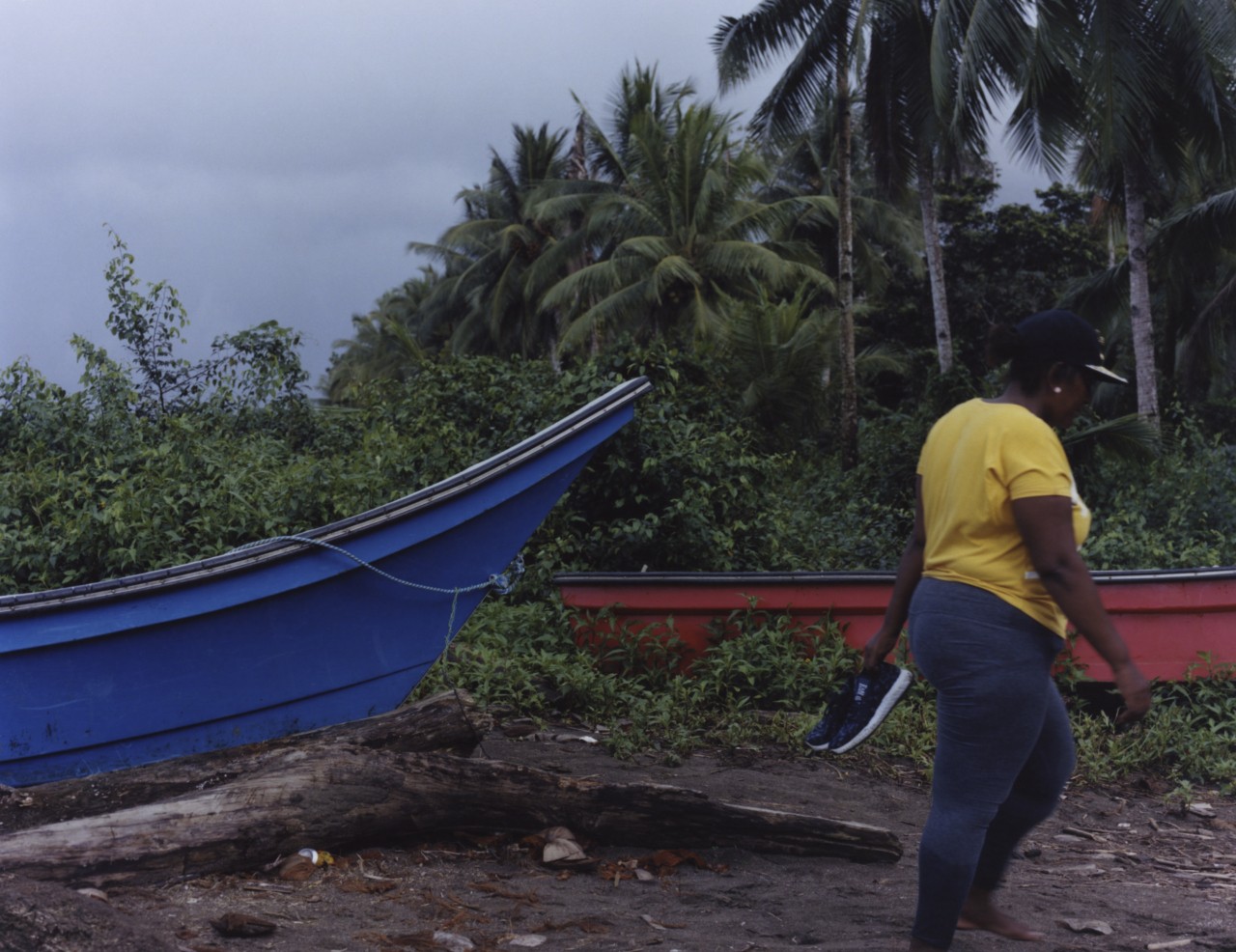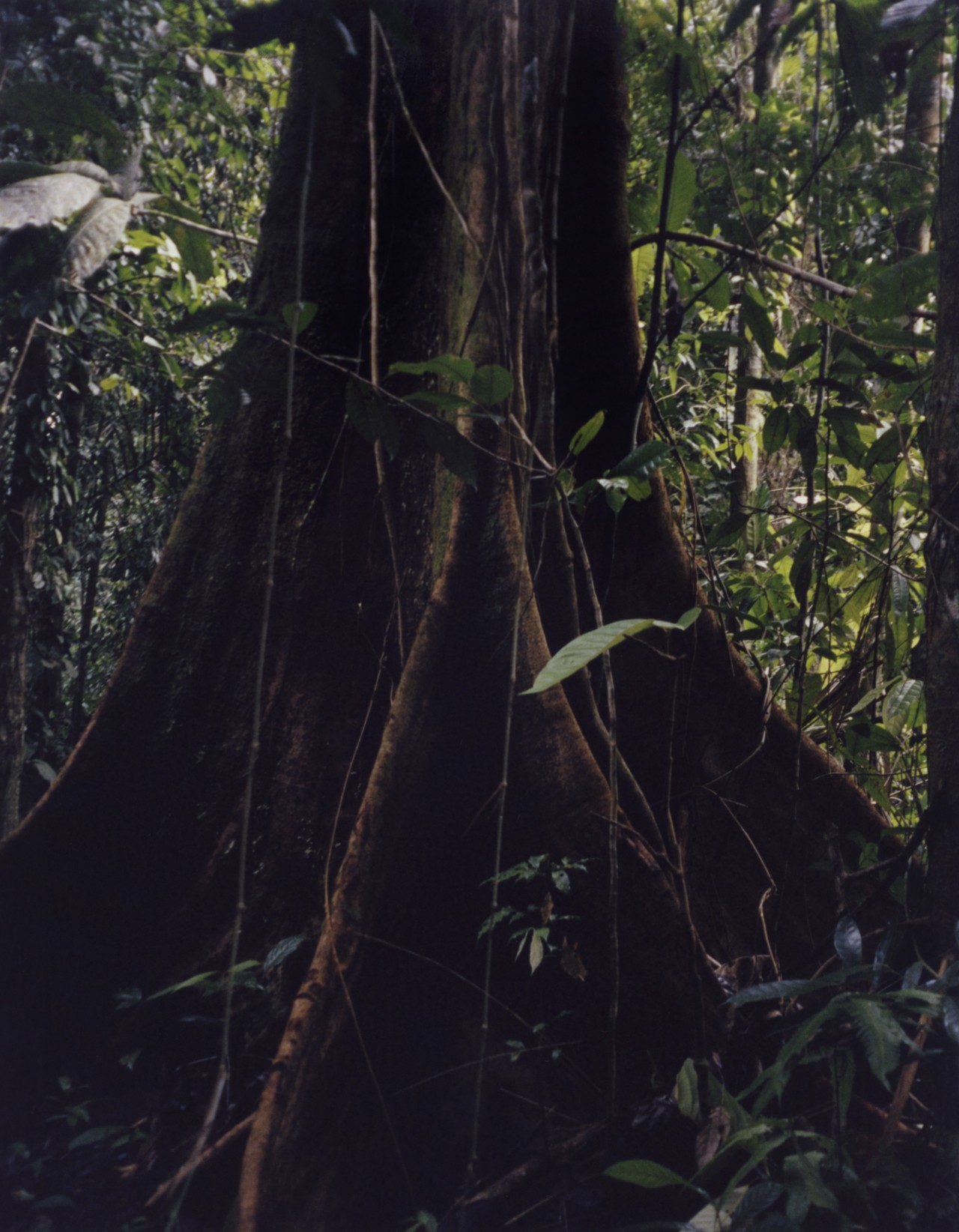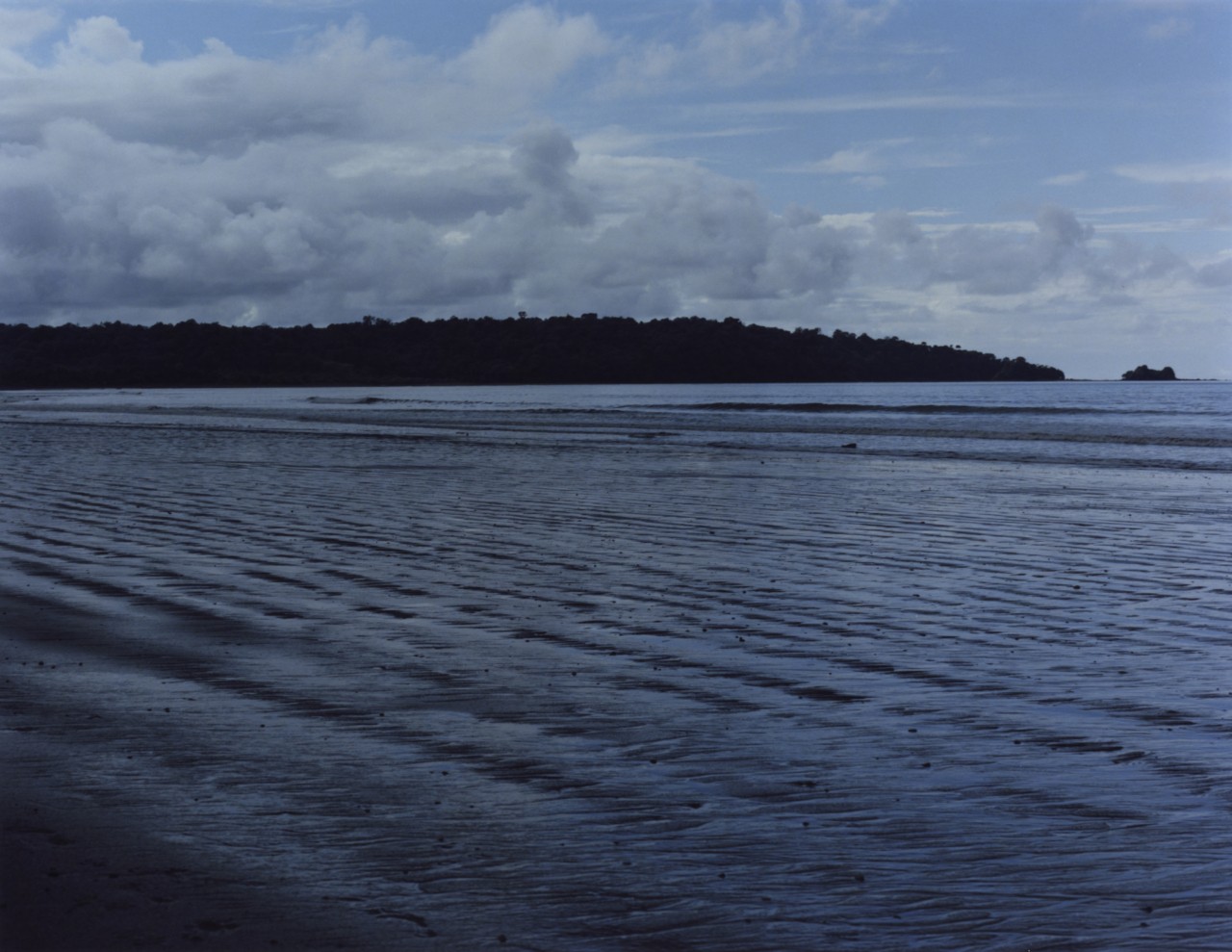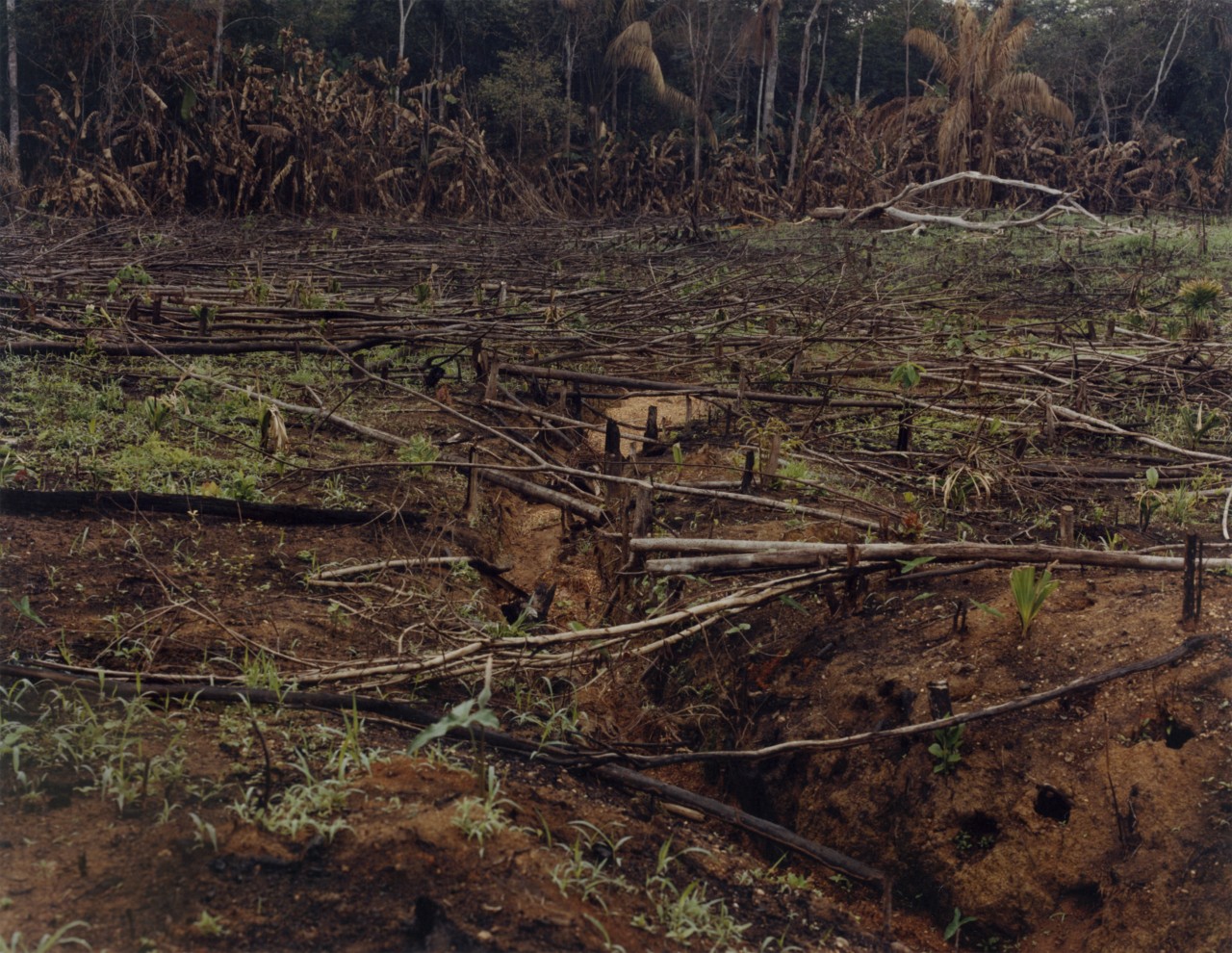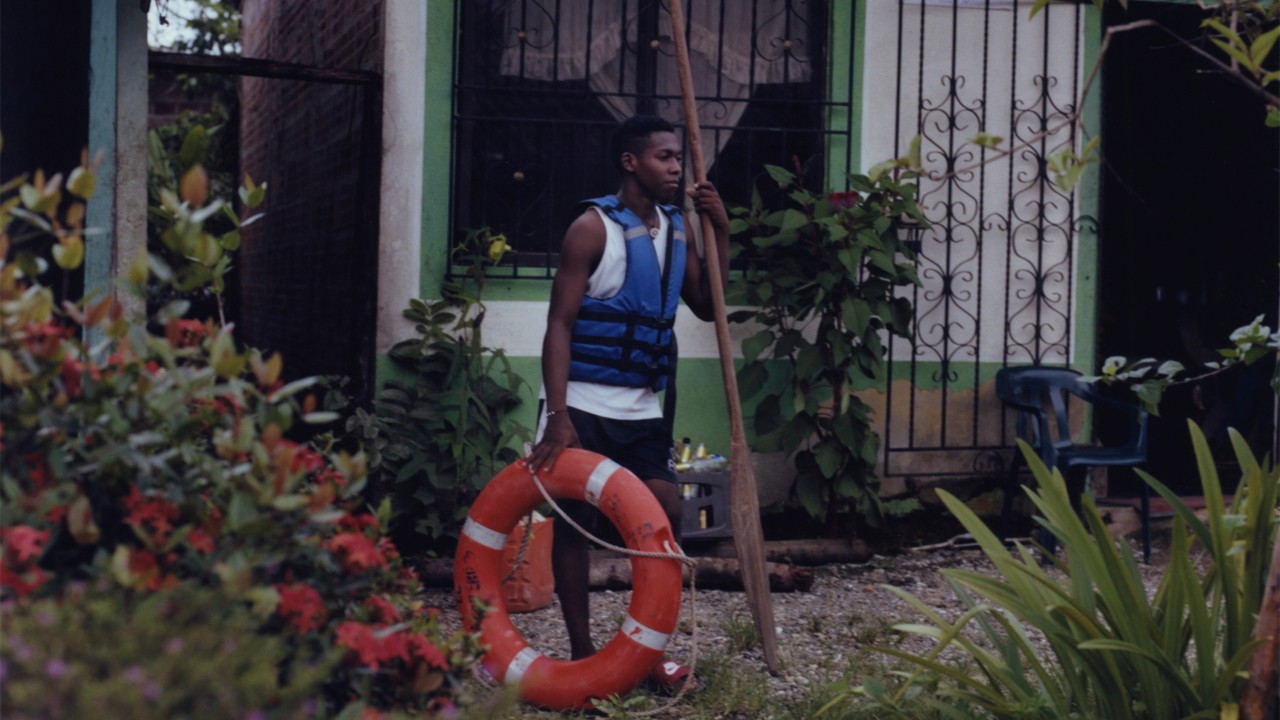
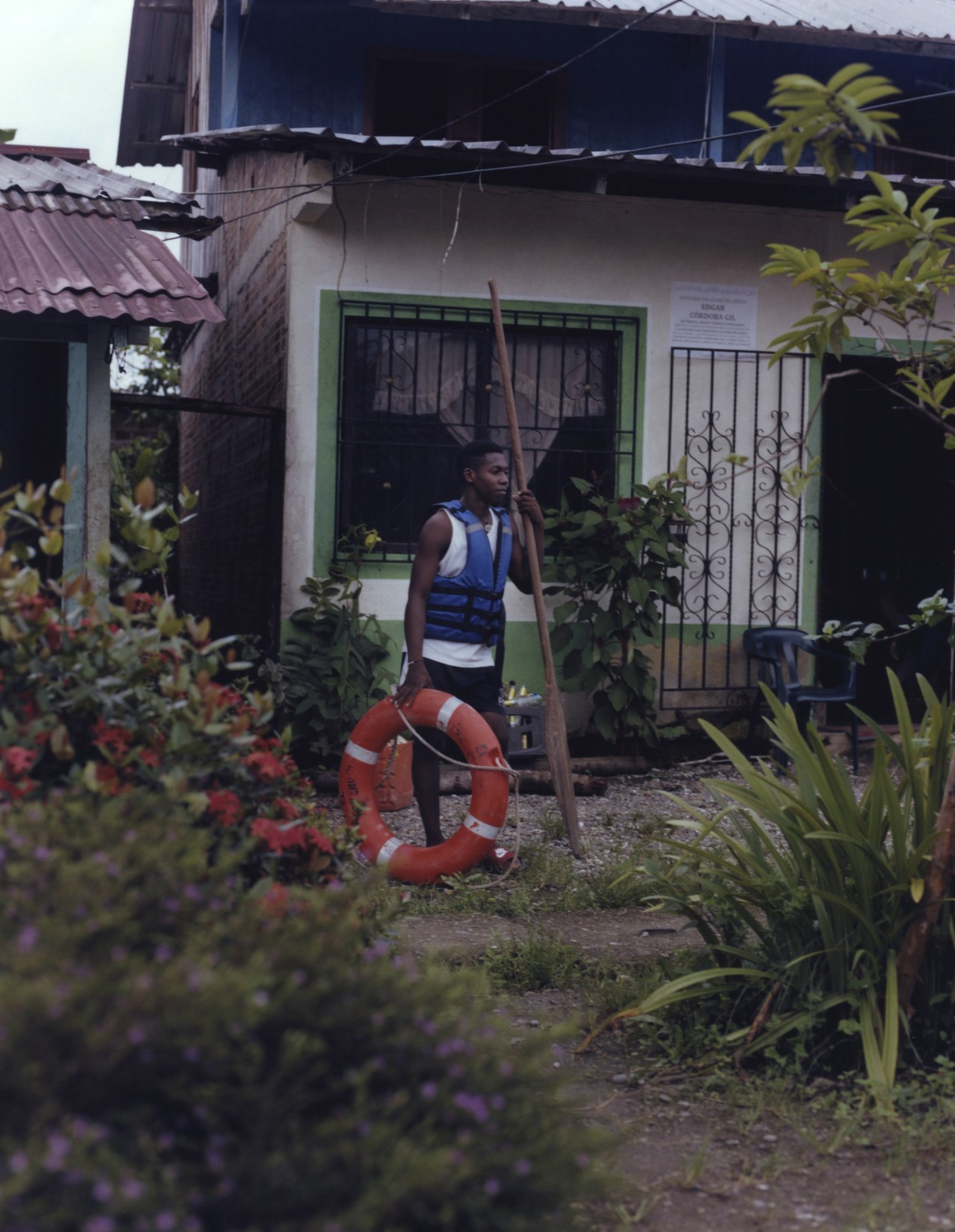
words by jasmine hardy
Photographs by Mateo Arciniegas Huertas
On most days, Aura Nelly Díaz is up before the sun. Before leaving for work, she must help her two grandkids get ready for school and daycare, as well as prepare food for her husband, who lost one of his legs some 30 years prior. When she finally gets a free moment, she checks her ocean tide chart, making sure the current is low enough before heading to the mangrove swamps for the day. By 6am, she’s on her way out the door—but not without first packing some food to go. Her work in the swamps is long and taxing, she says. She’ll need all the energy she can get.
As a pianguera, Díaz is in charge of safeguarding the biodiverse forests of Colombia’s Pacific Coast. From the tangled roots of mangrove trees, she extracts small mollusks called piangua, a vital food and economic source in her ancestral territory, La Plata, Bahía Málaga. Using a pianguameter, she measures the size of each shell to know if the mollusk is ready to be extracted—harvesting too soon threatens their population growth, and disrupts the mangrove ecosystems that host them.
Díaz doesn’t do this work alone. In fact, there are 28 other Afro-Colombian women in her region who proudly carry the title with her. Dressed in their standard attire—large boots, a headscarf, and long sleeves doused in bug repellent—they travel by canoes through the swamp in search of shallow sections where they can get out and uncover the piangua amidst the mud.
Díaz says she often passes the long hours by singing about her surroundings, the various melodic sounds of the jungle carrying the lyrics along: Cuando sube la marea se escucha el chango cantar (When the tide rises you can hear the monkey sing)/ Cuando sube la marea se escucha el chango cantar, comiendo camarones (When the tide rises you can hear the monkey sing, eating shrimp)/ Hacia el borde de los manglares (Towards the edge of the mangroves)/ Comiendo camarones hacia el borde del manglar (Eating shrimp towards the edge of the mangrove)
“This festival enables people to visualize us. In this space we can have visibility to all the work that we are doing as women.”
Three hours up the road in the Pacific’s capital city, Díaz recites these same lyrics, this time in front of a small crowd, with fellow piangueras and long-time friends Marlin Valencia and Lucy Fernanda Mosquera harmonizing alongside her. We’re at El Petronio Festival, the largest celebration of Afro-Colombian culture in Latin America; Díaz, Mosquera, and Valencia have traveled here to represent the Pianguera women of the Pacific.
“Where we are is a little bit hidden and many people don’t know the place,” said Mosquera. “[This festival] enables people to visualize us. In this space we can have visibility to all the work that we are doing as women.”
The festival is one of the only spaces where Afro-Colombians’ enormous contributions to nature conservation, which is deeply embedded into their culture, is recognized, bringing together Black campesinos (peasant farmers) from across the region. It’s a safe and celebratory space they’ve had to cultivate themselves in light of a long history of being overlooked both on a national scale and an international one. Geographically isolated from the rest of the country, they’ve been left alone to deal with a host of human and environmental threats in their territories, including illegal logging and mining, displacement from megaprojects, and rampant violence from armed groups over natural resources. Colombia remains the most dangerous place in the world for Afro-descendant land defenders, and the Pacific region is the deadliest.

In its 28th year, El Petronio Festival’s usual markings were there—drums and marimbas, colorfully patterned dresses, food stands selling piangua and other seafood from the coast. But there was also an unfamiliar, yet distinct logo that seemed to be on display everywhere we turned: “COP16 Paz con la Naturaleza” or, in English, “COP16 Peace with Nature.”
That’s because this year’s festivities were organized in close collaboration with the approaching Convention on Biological Diversity (CBD), which will also be held in the Pacific’s capital next month, drawing international attention to an otherwise abandoned location. The decision to host the largest conference for biodiversity conservation in a region home to 10% of the planet’s animal and plant species makes sense. But, acknowledging one of the most biodiverse places in the world also means shining a light on its stewards. After all, the Colombia Pacific is home to the second highest population of Black people in Latin America after Brazil, many of whom consider themselves to be “natural custodians” of the land.
Approximately 77% of Afro-descendant peoples’ territories in Latin America and the Caribbean are located within biodiversity hotspots, spanning tropical forests, wetlands, shrublands, and marine ecosystems. Only 5%, however, are officially recognized as owned by these communities, leaving their homes open to exploitation and land grabbing from international companies and paramilitary groups. In terms of national policy making, the Inter-American Commission on Human Rights have characterized Afro-Colombians as invisibilized.
In the current CBD COP framework, there isn’t any mention of Afro-descendant communities or their role in nature conservation, providing virtually no protections or investment into the key players critical to achieving global initiatives to halt biodiversity loss, such as last meeting’s 30×30 agreement which aims to protect 30% of the world’s land and sea by 2030. Many Afro-descendant organizations are viewing this year’s COP as not only an opportunity to bring attention to their contributions to biodiversity, but to also make their voices heard.

Acknowledging one of the most biodiverse places in the world also means shining a light on its stewards.
“A lot of the fight of Afro-descendant people is about political representation,” said Lucas Taffin, founder of Human Conet, a Franco-Colombian collective committed to the protection of land defenders. “They demand a seat at the table because they have propositions—not just to say help me, but because they have ideas on how to protect territories and change how we relate to the territories.”
As the host and chair of this year’s convention, Colombian government representatives seem to be listening to Afro-Colombian voices, putting forth a valiant effort to mend their fractured relationship and declaring it a “COP of the People.”
“This is also an opportunity to heal wounds, to seal a social pact, to put the eyes of the world on the Pacific, on its regions and conflicts,” said Colombia’s president, Gustavo Petro, when revealing Cali as this year’s host. “This is the time for the protection of life, for peace with nature.”
President Petro’s administration is considered to be the most progressive in Colombian history, with him as the country’s first ever left-wing president and vice president Francia Márquez Mina as the first Black woman to hold her position. Márquez is also an environmental activist who hails from the Pacific region and has been working alongside several Afro-descendant groups to formulate a list of demands in anticipation of the conference.
There are 15 listed total, the first requesting the inclusion of the term “Afro-Descendant Peoples” in the official CBD texts. Currently, it only recognizes Indigenous and local communities, neither of which “identifies or includes us,” noted Márquez. This simple acknowledgment of their identity is an essential first step; but, they are also asking for an international agreement to implement the mechanisms needed to uplift their communities. Their preamble states, “A global commitment is essential to ensure the rights of Afro-descendant communities to a clean, healthy, and sustainable environment, with measures to prevent and mitigate the harmful effects of extractive activities, infrastructure projects, and renewable energy in the territories of Afro-descendant Peoples.”

So far, this year’s CBD COP agenda looks encouraging for these historically excluded communities. For the first time ever, it includes an Afro-descendant pre-COP summit and will host the largest Green zone in history, a forum open to civilians and non-government groups to influence negotiations. The zone will hold space for a number of discussions related to Afro-descendant peoples, including one about the “women guardians of the mangrove”—also known as the piangueras. As for the more exclusive Blue zone, there will be an Afro-descendant national forum where points discussed in the Green zone can be shared among accredited participants, such as delegations of the Parties and Heads of State—and potentially become policy.
While these dedicated forums pushed forward by Colombian organizers are essential in gaining recognition and land protection for Afro-descendant people, it’s up to the international parties to agree on what that inclusion looks like on a legal basis moving forward. According to David Ainsworth, information officer for the CBD Secretariat, this isn’t the first time the topic of including the term Afro-descendant in official frameworks has been raised for spaces like COP, though there has never been any agreed upon language that officially “brings them in[to]” policy.
“This issue came up in both a meeting of our working group that deals with Indigenous people and local communities in Geneva last year and at our subsidiary bodies in Nairobi,” he said. “In some documents there are Afro-descendants in brackets, but I think in other places it was removed. I know the government of Colombia is very keen on that but there’s no consensus on what that means right now.”
As for whether this “consensus” will be achieved this year, Taffin isn’t holding his breath. He says he has a lot more hope in the resistance movements born from these communities than in the decisions of governments, including Colombia’s, who have a history of shelling out empty policy promises like “peace initiatives” with no tangible results in the impacted territories.
“Territory is life. You do not sell life, you defend it.”
Communities such as La Plata, where the piangueras live, have managed to protect themselves and the land this far, forming a community council to safeguard their archipelago. Still, in the surrounding islands where the council isn’t present, people are being pushed out and those who resist are killed. “The quickest way to ensure protection for territories would be to increase direct support to the organizations already defending life in the territory with little means,” said Taffin.
Being officially included in the outcomes of this year’s COP—both in written policy and the committed implementation of it—would be a big win for Afro-descendant stewards of the land. But, many believe that more can be done by the government right now. In a recent meeting to discuss a much needed peace agreement in the Pacific region, hundreds of local residents as well as grassroots organizations like Human Conet came to offer ideas and show support. Unfortunately, Taffin says, no government officials showed up.
Ultimately, Afro-descendant peoples aren’t looking for anyone to come into their territories and save them—they look to the councils they’ve entrusted for that. Rather, they want to be recognized for the work they do to care for and preserve the land; and they want adequate support so that they can continue doing so. “We want communication between our council and the government to provide for a more dignified life,” says Díaz.
Until those systemic changes come into effect and the implications are felt by frontline communities, Afro-descendent people refuse to leave their ancestral lands, regardless of the threats they face. “Territory is life,” says Taffin. “You do not sell life, you defend it.”

translation Leidy Johanna Zamora Valencia
At Colombia’s COP16, Afro-Descendant People Need a Seat at the Table
